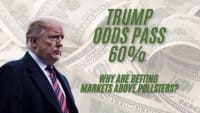 The housing market is in trouble, and perhaps enough trouble that it will be the one sector of the economy that will face a double-dip recession. The idea that housing is related to unemployment is finally in vogue, as it should be. The HAMP plan did not work for several reasons, among them that borrowers faced the often Byzantine bureaucracies at the government and the banks. A rising population of part-time workers with no benefits, high consumer credit, and the record number of homes worse less than their outstanding loans added to the program’s woes.
The housing market is in trouble, and perhaps enough trouble that it will be the one sector of the economy that will face a double-dip recession. The idea that housing is related to unemployment is finally in vogue, as it should be. The HAMP plan did not work for several reasons, among them that borrowers faced the often Byzantine bureaucracies at the government and the banks. A rising population of part-time workers with no benefits, high consumer credit, and the record number of homes worse less than their outstanding loans added to the program’s woes.
Housing has not begun to falter. The data from the last month show that it was faltering all along. Tax rebates for home buyers and low mortgage rates were the only reasons why prices did not fall even further.
The vicious circle that includes housing and employment also includes business productivity rates that show that many enterprises are still concerned about the economy. The Business Round Table survey of the CEOs at America’s largest companies showed that they believe GDP will be up less than 3% this year. They will, as a group, do some hiring, but do not expect their hiring to rise at the same rate as their sales. In other works, they mean to squeeze workers for more productivity. Job additions will continue to be rare.
At the center of the circle are interest rates. The Fed dropped its economic outlook, largely due to problems in Europe. It said that interest rates would be held near zero until next year. Europe was never the problem. It is just a new problem. It has not superseded a brief recovery the US economy staged late last year and early in this one. Consumer and business confidence, employment gains and consumer gains all began to end about two months ago. The data the market is seeing is that old. The situation in late May and early June may have deteriorated.
A number of press reports out after the Federal Open Market Committee notes were released said that the Fed is “out of ammunition.” That is hardly the case.
N. Gregory Mankiw, a professor of economics at Harvard, suggested a year ago that the Fed should move interest rates below zero. That would allow it to underwrite an economic expansion. Banks could borrow money at $1 and pay back 99 cents. The Fed could add a negative interest rate program to another round of aggressive mortgage paper purchases and probably push mortgage rates to 2%. Businesses could borrow without the need to pay significant interest. These actions might begin to free up enough liquidity more than offset a host of problems in the economy.
Economists reject the idea of negative interest rates as too revolutionary and perhaps impractical. Those things are true to the extent that the Federal Reserve would be faced with a theoretically limitless exposure to capital demand if interest rates were negative. It might have to raise money in the capital markets. There is no economic model to predict what happens when a central bank borrows money to lend it at less than par.
One of the things that economists know is that the federal government has spent a large part of the $787 billion stimulus package and has little to show. Congress and the President can argue that the economy would have been worse if not for the money, but that is a Pyrrhic victory.
The stimulus package had the one weakness that almost all federal government programs do. The money rarely went to the people or institutions that needed it. The capital moved through the system indirectly in many cases. The broadband infrastructure investment program may have put money into the sector, but that does not mean the money was used to create jobs.
Job creation is still the economy’s undoing. A recent Wall Street Journal poll showed that the economy and jobs were the major concern of most people. The President’s rating fell in the poll in large part because of jobs.
Stimulus spending has been a failure by most measures. The Fed is not impotent. It may be the only agency in the US government that can pull the economy out of another period of slow growth or no growth. To do that, it will have to come up with programs that have no historical precedent.
Thank you for reading! Have some feedback for us?
Contact the 24/7 Wall St. editorial team.


